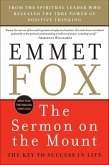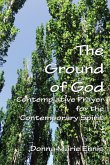J.C. Ryle was well known for his warm, plain-spoken candor, the kind which appeals to all souls regardless of rank or title, and this short book is no different. Bold, encouraging, and affectionate, "A Call to Prayer" is just as the title says-an earnest invitation for all children of God to come before Him in prayer. Read it, be edified, and have hope: you have access to the Maker of heaven and earth who can do all things.
In this classic book, Ryle charges the reader with the necessity of prayer. He cuts through the excuses and the pretense with the simple question: "Do you pray?" Ryle's style is concise and imminently readable. He argues that prayer or the lack of prayer is the single greatest barometer for a person's status before the Lord, for "to be prayerless is to be without Christ, without God, without grace, without hope, and without heaven."
Ryle goes beyond the question to the meat of the issue, giving strong arguments for why prayer is so necessary for the spiritual well-being of an individual. Once he has made his point, Ryle turns his attention to how a person should pray. This work of prayer, according to Ryle, is so often neglected because it is such an arduous task cutting against the flesh and standing (or kneeing in this case) in direct opposition and defiance of Satan himself.
Ryle encourages the Christian to pray with reverence and humility, spiritually, as a regular part of their business of life, with all perseverance, in earnestness, in faith, with boldness, with fullness, on behalf of others, with thankfulness and with watchfulness over one's prayers. In one of the many quotable phrases from this book, Ryle challenged readers to "tell me what a man's prayers are, and I will soon tell you the state of his soul:' concluding that "prayer is the spiritual pulse:' This book is a wonderful and encouraging read for any Christian desiring to walk more closely with God through prayer.
In this classic book, Ryle charges the reader with the necessity of prayer. He cuts through the excuses and the pretense with the simple question: "Do you pray?" Ryle's style is concise and imminently readable. He argues that prayer or the lack of prayer is the single greatest barometer for a person's status before the Lord, for "to be prayerless is to be without Christ, without God, without grace, without hope, and without heaven."
Ryle goes beyond the question to the meat of the issue, giving strong arguments for why prayer is so necessary for the spiritual well-being of an individual. Once he has made his point, Ryle turns his attention to how a person should pray. This work of prayer, according to Ryle, is so often neglected because it is such an arduous task cutting against the flesh and standing (or kneeing in this case) in direct opposition and defiance of Satan himself.
Ryle encourages the Christian to pray with reverence and humility, spiritually, as a regular part of their business of life, with all perseverance, in earnestness, in faith, with boldness, with fullness, on behalf of others, with thankfulness and with watchfulness over one's prayers. In one of the many quotable phrases from this book, Ryle challenged readers to "tell me what a man's prayers are, and I will soon tell you the state of his soul:' concluding that "prayer is the spiritual pulse:' This book is a wonderful and encouraging read for any Christian desiring to walk more closely with God through prayer.
Dieser Download kann aus rechtlichen Gründen nur mit Rechnungsadresse in A, D ausgeliefert werden.









